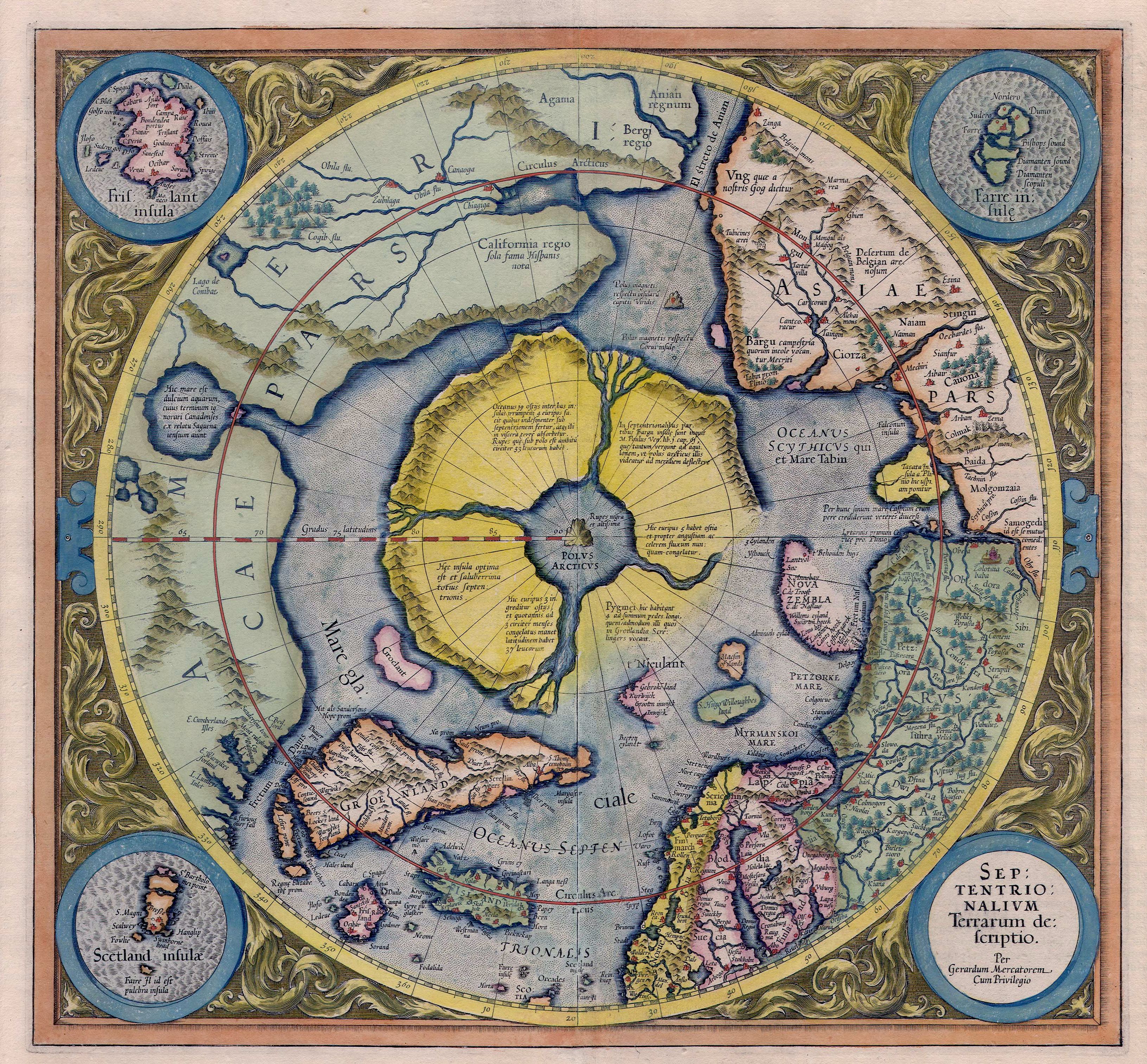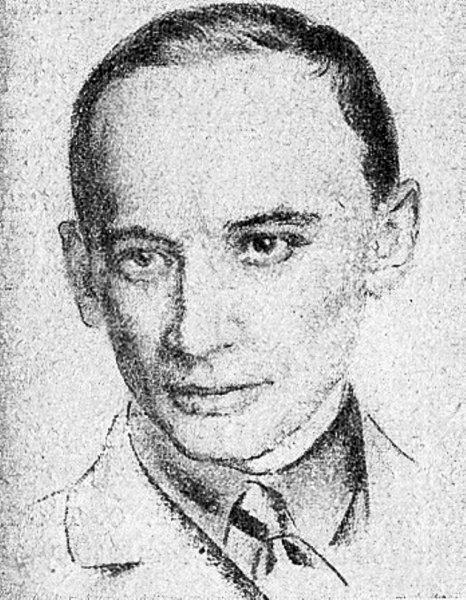|
Alexander Barchenko
Barchenko in 1937 Alexander Vasilyevich Barchenko (russian: link=no, Александр Васильевич Барченко; 1881, Yelets — April, 1938) was a Russian biologist and researcher of anomalous phenomena from St. Petersburg. In 1904 Barchenko attended the biological faculty of Kazan University, and subsequently entered Yuryev University (today Tartu University). He is known first and foremost for his researchings of Hyperborea in Russian Far East region. In 1925, he met and corresponded with Rabbi Menachem Mendel Schneerson, who assisted him in his research and studies of religious and mystical matters. He was executed in Moscow during the Great Purge The Great Purge or the Great Terror (russian: Большой террор), also known as the Year of '37 (russian: 37-й год, translit=Tridtsat sedmoi god, label=none) and the Yezhovshchina ('period of Yezhov'), was Soviet General Secreta ... on April 25, 1938. See also * Gleb Bokii References 1881 ... [...More Info...] [...Related Items...] OR: [Wikipedia] [Google] [Baidu] |
Yelets
Yelets, or Elets (russian: Еле́ц), is a city in Lipetsk Oblast, Russia, situated on the Bystraya Sosna River, which is a tributary of the Don. Population: History Yelets is the oldest center of the Central Black Earth Region. It was mentioned in historical documents as early as 1146 or 1147, when it was a fort belonging to the Princes of Ryazan. The town's position at the very south of Russian lands made it an easy prey for Turkic conquerors. The Mongols burned it in 1239, Uzbeg Khan ravaged it in 1316, Timur sacked it in 1395, and the Tatars devastated it in 1414. In 1483, the Principality of Yelets was absorbed by the Grand Duchy of Moscow, while the local Rurikid rulers (last heard of in the 19th century) entered the service of Ivan III. In 1591, Boris Godunov revived the largely deserted town by establishing a fortress there. In 1618, the fortress was captured "by subterfuge" by 20,000 Cossacks under Petro Konashevych-Sahaidachny, allied with Wład ... [...More Info...] [...Related Items...] OR: [Wikipedia] [Google] [Baidu] |
Kazan University
Kazan (Volga region) Federal University (russian: Казанский (Приволжский) федеральный университет, tt-Cyrl, Казан (Идел буе) федераль университеты) is a public research university located in Kazan, Russia. Founded in 1804 as Imperial Kazan University, astronomer Nikolai Ivanovich Lobachevsky served there as the rector from 1837 until 1876. In 1929, the university was renamed in honour of its student Vladimir Ilyich Ulyanov (Lenin). The university is known as the birthplace of organic chemistry due to works by Aleksandr Butlerov, Vladimir Markovnikov, Aleksandr Arbuzov, and the birthplace of electron spin resonance discovered by Evgeny Zavoisky. In 2011, Kazan University received a federal status. It is also one of 18 Russian universities that were initially selected to participate in the Project 5-100, coordinated by the Government of the Russian Federation and aimed to improve their international co ... [...More Info...] [...Related Items...] OR: [Wikipedia] [Google] [Baidu] |
Tartu University
The University of Tartu (UT; et, Tartu Ülikool; la, Universitas Tartuensis) is a university in the city of Tartu in Estonia. It is the national university of Estonia. It is the only classical university in the country, and also its biggest and most prestigious university. It was founded under the name of ''Academia Gustaviana'' in 1632 by Baron Johan Skytte, the Governor-General (1629–1634) of Swedish Livonia, Ingria, and Karelia, with the required ratification provided by his long-time friend and former student – from age 7 –, King Gustavus Adolphus, shortly before the king's death on 6 November in the Battle of Lützen (1632), during the Thirty Years' War (1618–1648). Nearly 14,000 students are at the university, of whom over 1,300 are foreign students. The language of instruction in most curricula is Estonian, some more notable exceptions are taught in English, such as semiotics, applied measurement science, computer science, information technology law, and Euro ... [...More Info...] [...Related Items...] OR: [Wikipedia] [Google] [Baidu] |
Hyperborea
In Greek mythology, the Hyperboreans ( grc, Ὑπερβόρε(ι)οι, ; la, Hyperborei) were a mythical people who lived in the far northern part of the known world. Their name appears to derive from the Greek , "beyond Boreas" (the God of the North Wind), although some scholars prefer a derivation from ("to carry over"). Despite their location in an otherwise frigid part of the world, the Hyperboreans were believed to inhabit a sunny, temperate, and divinely-blessed land. In many versions of the story, they lived north of the Riphean Mountains, which shielded them from the effects of the cold North Wind. The oldest myths portray them as the favorites of Apollo, and some ancient Greek writers regarded the Hyperboreans as the mythical founders of Apollo's shrines at Delos and Delphi. Later writers disagreed on the existence and location of the Hyperboreans, with some regarding them as purely mythological, and others connecting them to real-world peoples and places in no ... [...More Info...] [...Related Items...] OR: [Wikipedia] [Google] [Baidu] |
Russian Far East
The Russian Far East (russian: Дальний Восток России, r=Dal'niy Vostok Rossii, p=ˈdalʲnʲɪj vɐˈstok rɐˈsʲiɪ) is a region in Northeast Asia. It is the easternmost part of Russia and the Asian continent; and is administered as part of the Far Eastern Federal District, which is located between Lake Baikal in eastern Siberia and the Pacific Ocean. The area's largest city is Khabarovsk, followed by Vladivostok. The region shares land borders with the countries of Mongolia, China, and North Korea to its south, as well as maritime boundaries with Japan to its southeast, and with the United States along the Bering Strait to its northeast. The Russian Far East is often considered as a part of Siberia (previously during the Soviet era when it was called the Soviet Far East). Terminology In Russia, the region is usually referred to as just "Far East" (). What is known in English as the Far East is usually referred to as "the Asia-Pacific Region" (, abb ... [...More Info...] [...Related Items...] OR: [Wikipedia] [Google] [Baidu] |
Menachem Mendel Schneerson
Menachem Mendel Schneerson (Modern Hebrew: מנחם מענדל שניאורסון; old-fashioned spelling: מנחם מענדל שניאורסאהן; April 5, 1902 OS – June 12, 1994; AM 11 Nissan 5662 – 3 Tammuz 5754), known to many as the Lubavitcher Rebbe or simply the Rebbe, was a Russian Empire-born American Orthodox rabbi, the most recent Rebbe of the Lubavitch Hasidic dynasty and an electrical engineer. He is considered one of the most influential Jewish leaders of the 20th century.Matt Flegenheimer"Thousands Descend on Queens on 20th Anniversary of Grand Rebbe’s Death" The New York Times As leader of the Chabad-Lubavitch movement, he took an insular Hasidic group that almost came to an end with the Holocaust and transformed it into one of the most influential movements in religious Jewry, with an international network of over 5,000 educational and social centers. The institutions he established include kindergartens, schools, drug-rehabilitation centers, ... [...More Info...] [...Related Items...] OR: [Wikipedia] [Google] [Baidu] |
Great Purge
The Great Purge or the Great Terror (russian: Большой террор), also known as the Year of '37 (russian: 37-й год, translit=Tridtsat sedmoi god, label=none) and the Yezhovshchina ('period of Yezhov'), was Soviet General Secretary Joseph Stalin's campaign to solidify his power over the party and the state; the purges were also designed to remove the remaining influence of Leon Trotsky as well as other prominent political rivals within the party. It occurred from August 1936 to March 1938. Following the death of Vladimir Lenin in 1924 a power vacuum opened in the Communist Party. Various established figures in Lenin's government attempted to succeed him. Joseph Stalin, the party's General Secretary, outmaneuvered political opponents and ultimately gained control of the Communist Party by 1928. Initially, Stalin's leadership was widely accepted; his main political adversary Trotsky was forced into exile in 1929, and the doctrine of " socialism in one country" b ... [...More Info...] [...Related Items...] OR: [Wikipedia] [Google] [Baidu] |
Gleb Bokii
Gleb Ivanovich Bokii ( ukr, Гліб Іванович Бокій; russian: Глеб Иванович Бокий; 21 June 1879 – 15 November 1937) was a Ukrainian Communist political activist, revolutionary, and paranormal investigatorZnamenski, Andrei. (2011). ''Red Shambhala: Magic, Prophecy, and Geopolitics in the Heart of Asia''. Quest Books, Wheaton, IL (2011) . in the Russian Empire. Following the October Revolution of 1917, Bokii became a leading member of the Cheka, the first Soviet secret police, and later of the OGPU and NKVD. From 1921 through 1934, Bokii (alternative transliteration, Boky) headed the "special department" of the Soviet secret police apparatus. He remained a top level functionary in the secret police apparatus until his sudden arrest in May 1937 as part of the Great Terror. Following an extended investigation, Bokii was given a summary trial and executed in November of that same year. In 1956, Bokii was posthumously rehabilitated by Soviet authoriti ... [...More Info...] [...Related Items...] OR: [Wikipedia] [Google] [Baidu] |
1881 Births
Events January–March * January 1– 24 – Siege of Geok Tepe: Russian troops under General Mikhail Skobelev defeat the Turkomans. * January 13 – War of the Pacific – Battle of San Juan and Chorrillos: The Chilean army defeats Peruvian forces. * January 15 – War of the Pacific – Battle of Miraflores: The Chileans take Lima, capital of Peru, after defeating its second line of defense in Miraflores. * January 24 – William Edward Forster, chief secretary for Ireland, introduces his Coercion Bill, which temporarily suspends habeas corpus so that those people suspected of committing an offence can be detained without trial; it goes through a long debate before it is accepted February 2. * January 25 – Thomas Edison and Alexander Graham Bell form the Oriental Telephone Company. * February 13 – The first issue of the feminist newspaper ''La Citoyenne'' is published by Hubertine Auclert. * February 16 – The Canad ... [...More Info...] [...Related Items...] OR: [Wikipedia] [Google] [Baidu] |
1938 Deaths
Events January * January 1 ** The Constitution of Estonia#Third Constitution (de facto 1938–1940, de jure 1938–1992), new constitution of Estonia enters into force, which many consider to be the ending of the Era of Silence and the authoritarian regime. ** state-owned enterprise, State-owned railway networks are created by merger, in France (SNCF) and the Netherlands (Nederlandse Spoorwegen – NS). * January 20 – King Farouk of Egypt marries Safinaz Zulficar, who becomes Farida of Egypt, Queen Farida, in Cairo. * January 27 – The Honeymoon Bridge (Niagara Falls), Honeymoon Bridge at Niagara Falls, New York, collapses as a result of an ice jam. February * February 4 ** Adolf Hitler abolishes the War Ministry and creates the Oberkommando der Wehrmacht (High Command of the Armed Forces), giving him direct control of the German military. In addition, he dismisses political and military leaders considered unsympathetic to his philosophy or policies. Gene ... [...More Info...] [...Related Items...] OR: [Wikipedia] [Google] [Baidu] |
People From Yelets
A person ( : people) is a being that has certain capacities or attributes such as reason, morality, consciousness or self-consciousness, and being a part of a culturally established form of social relations such as kinship, ownership of property, or legal responsibility. The defining features of personhood and, consequently, what makes a person count as a person, differ widely among cultures and contexts. In addition to the question of personhood, of what makes a being count as a person to begin with, there are further questions about personal identity and self: both about what makes any particular person that particular person instead of another, and about what makes a person at one time the same person as they were or will be at another time despite any intervening changes. The plural form " people" is often used to refer to an entire nation or ethnic group (as in "a people"), and this was the original meaning of the word; it subsequently acquired its use as a plural f ... [...More Info...] [...Related Items...] OR: [Wikipedia] [Google] [Baidu] |




_Menachem_Mendel_Schneerson.jpg)




_1938.jpg)